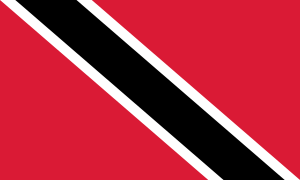Trinidadians and Tobagonians, colloquially known as Trinis or Trinbagonians, are the people who are identified with the country of Trinidad and Tobago. The country is home to people of many different national, ethnic and religious origins. As a result, Trinidadians do not equate their nationality with race and ethnicity, but with citizenship, identification with the islands as whole, or either Trinidad or Tobago specifically. Although citizens make up the majority of Trinidadians, there is a substantial number of Trinidadian expatriates, dual citizens and descendants living worldwide, chiefly elsewhere in the Anglosphere.
- ^ (CSO), Central Statistical Office. "Home".
- ^ Results American Fact Finder (US Census Bureau)
- ^ "2011 National Household Survey: Data tables". 8 May 2013. Retrieved 18 March 2015.
- ^ "Estimated overseas-born population resident in the United Kingdom by sex, by country of birth (Table 1.4)". Office for National Statistics. 28 August 2014. Retrieved 24 April 2015.
- ^ a b c d e f g h i j k l m n o p q r s t u v w x y z aa "Trinidad y Tobago - Emigrantes totales".
- ^ "Trinidad and Tobago". Ethnologue.
- ^ "The languages spoken in Trinidad and Tobago".
